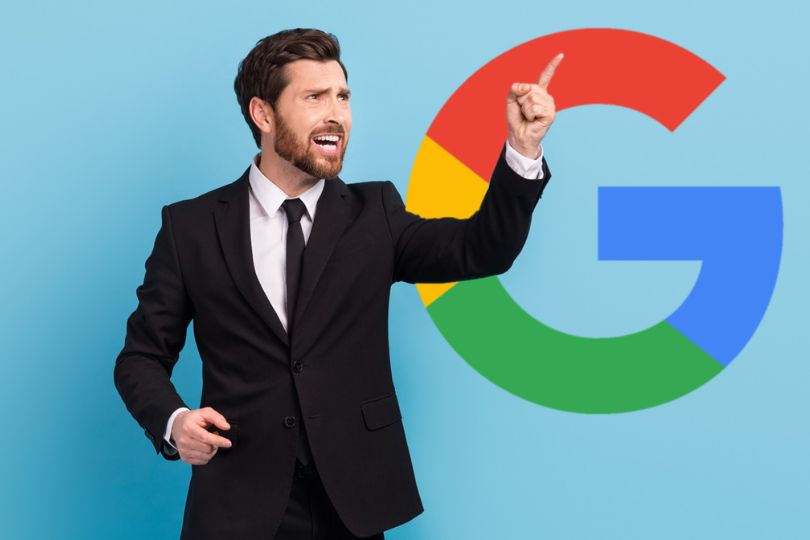Google Responds to Publisher Content "Stealing" Charges
Navigate the SEO landscape amid debates on content ownership, fair use, and Google's rich results ethics. Stay informed and empower your online presence.on Dec 21, 2023

Google's unexpected reaction to a publisher's complaint that Google was "stealing" trademarked searches for inclusion in rich results.
A publisher resorted to Twitter to express their displeasure with what they perceived to be effectively content theft for the benefit of Google with little to no profit to the publisher.
Google's response was unexpected and most likely not what publishers and SEOs expected.
The publisher displayed a screenshot of a branded site: search for things to do in Denver using information from their own website.
This wasn't limited to branded and site:searches, either.
Google was competing with the publisher's material for typical keyword searches such as Mexico Travel Tips.
The publisher posted a screenshot of the SERPs, which included a massive search tool that incorporated all of the publication's material.
He wrote on Twitter:
“They are doing this across all travel searches – unbranded and branded alike.
Example: “Mexico Travel Tips” – they have an AI answer & also a rich result that basically just re-creates an entire blog post, including our stolen photos.
Again, I am IN that Mexico packing photo!”
They followed up with the following tweets:
“Like how is it legal for Google to just essentially create entire blog posts from creators’ content and images?
I literally have a law degree from the top law school in the world, and even I can’t figure it out!
Fair use does NOT apply if you’re using the content to compete directly against the creator, which they clearly are.
I can’t sit outside a movie theatre, project the movie on a wall, earn money from it, and claim fair use.
I spent SO much time taking those photos in Denver.
It was 10+ full days worth of work for me and partner Clara, going around the city to photograph everything. $100s of money spent in attraction admission fees, gas, parking.
Now Google just gets to extract all that value?
How much does Google get to take before creators say “enough is enough”?
How hard does the water have to boil before the frog jumps?
The comments show it is a prisoner’s dilemma as long as Google has a monopoly on search …”
Google Reacts
Google's SearchLiaison (aka Danny Sullivan) answered by explaining what's going on. They described how the rich result, which incorporates all of the publisher's content, including a link back to the publisher's website.
SearchLiaison was wise not to insist that Google was correct. Instead, they were sympathetic to the publisher's plight.
Danny Sullivan, unlike many Googlers, used to be a publisher for many decades, therefore SearchLiaison certainly understood how the publisher felt. He, more than any other Googler, understands what it's like to be on the other side of Google.
SearchLiaison tweeted:
“Hey Nate, this got flagged to my attention. I’ll pass along the feedback to the team. Pretty sure this isn’t a new feature. Elsewhere in the thread, you talk about it being an AI answer, and I’m pretty sure that’s not the case, either. It’s a way to refine an initial query and browse into more results.
With the example you point out, when you expand the listing, your image is there with a credit. If you click, a preview with a larger view comes up, and that lets people visit the site. Personally, I’m not a fan of the preview-to-click.
I think it should click directly to the site (feedback I’ve shared internally before, and I’ll do this again). But it’s making use of how Google Images operates, where there’s a larger preview that helps people decide if an image is relevant to their search query. Your site is also listed there, too. Click on that, people get to your site.”
If you don’t want your images to appear in Google Search, this explains how to block them:
https://developers.google.com/search/docs/crawling-indexing/prevent-images-on-your-page
I suspect you’d prefer an option to not have them appear as thumbnails in particular features. We don’t have that type of granular control, but I’ll also pass the feedback on.”
SearchLiaison followed up with another tweeted response:
“I appreciate your thoughts and concerns. I do. The intention overall is to make search better, which includes ensuring people do indeed continue to the open web — because we know for us to thrive, the open web needs to thrive.
But I can also appreciate that this might not seem obvious from how some of the features display.
I’m going to be sharing these concerns with the search team, because they’re important.
You and other creators that are producing good content (and when you’re ranking in the top results, that’s us saying it’s good content) should feel we are supporting you.
We need to look at how what we say and how our features operate ensure you feel that way.
I’ll be including your response as part of this.”
Are Google's Rich Results Inequitable?
There is a legal definition of what is fair, and Google may have a legal right to use website content in a way that gives the impression that Google is "stealing" the content from a publisher in order to outrank that publication with their own content.
There is, however, a subjective common sense definition of fair play that you feel in your heart. Perhaps it is the sense of fairness that many publishers have when Google appears to use their content in a way that benefits Google more than the publisher.
Is this one of those circumstances where "just because you can" doesn't mean "just because you should"?



.jpg)






.jpg)

.jpg)
.jpg)
.jpg)
.jpg)
.jpg)
.jpg)










Sorry! No comment found for this post.